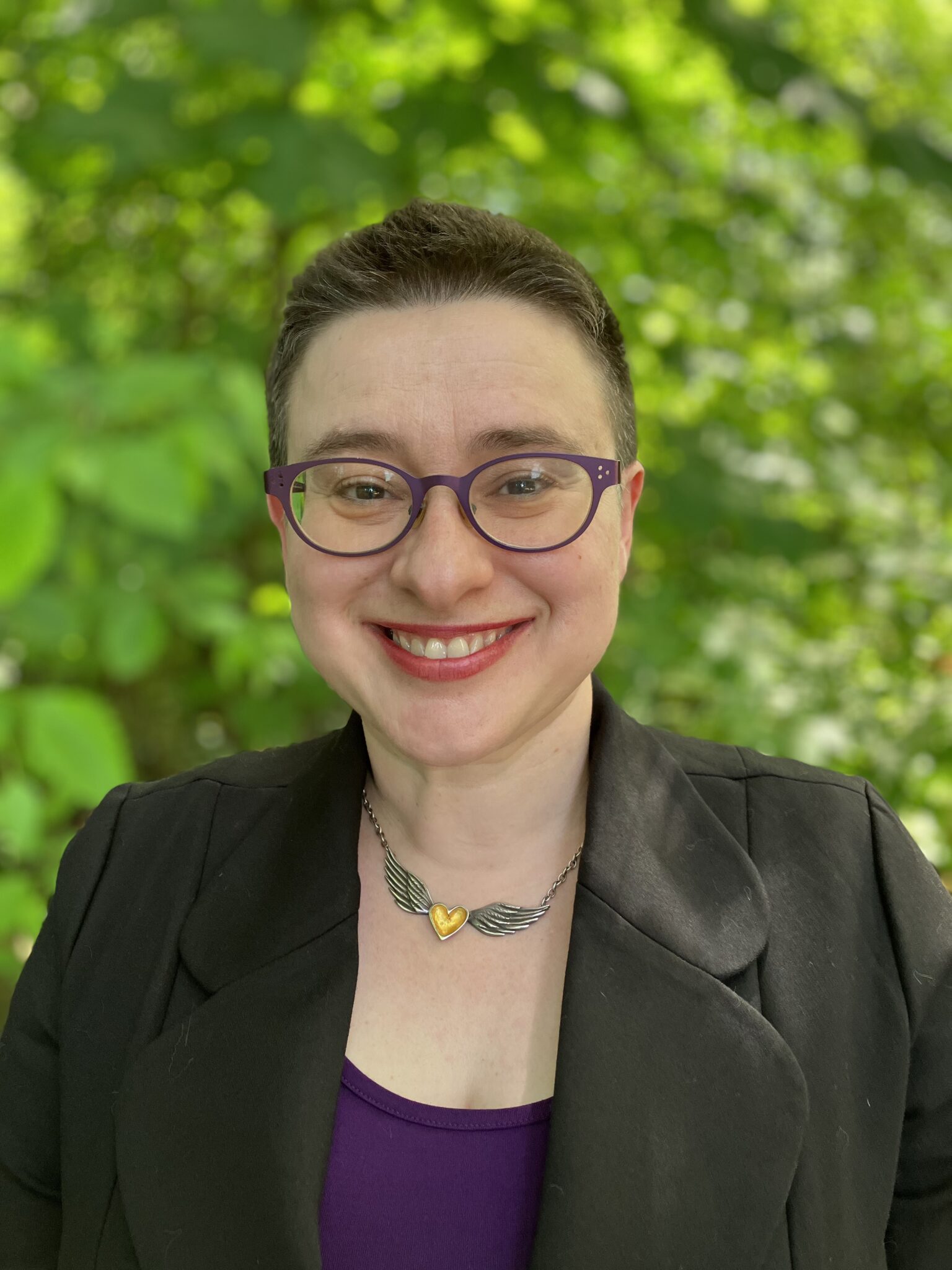Not feeling like yourself?
Our counsellors are here to help you get back on track.
As a student, you are likely dealing with many different personal challenges and stressful situations in addition to your school work. You are not alone. Learn about some common mental health challenges, resources offered by Columbia College and the local community, helpful online tools, and more.
Mental Health Counsellors
Columbia College counsellors are available to provide help and guidance for a wide range of life challenges and mental health concerns. Counsellors can assist with issues related to anxiety, depression, stress, relationships, grief, addiction, adjustment to life in Canada, as well as academic and career planning matters. If you are experiencing a crisis, Columbia College counsellors can assist and refer you to the appropriate community agency.
If you would like to book a counselling appointment, please email ssa@colubmiacollege.ca or book an appointment through the student portal by clicking Useful Links, followed by, Book an Appointment with an Advisor for mental health counselling. Appointments are available to be in-person or virtual (audio or video call) via Microsoft Teams.

Sophie Baker
Counsellor and Academic Advisor sbaker@columbiacollege.ca

Wendy Shen
Counsellor
wshen@columbiacollege.ca

Galina Freed
Counsellor
gfreed@columbiacollege.ca

Gurleen Powar
Counsellor
gpowar@columbiacollege.ca
Confidentiality
We understand that what you share with counsellors is private information, so this material is held in the strictest confidence. The counsellor you speak with may consult with other Columbia College counsellors for supervision purposes. Counsellors are also required by law to report when individuals may be an imminent danger to themselves or others; current instances of child abuse are evident; and when required to do so if files are subpoenaed.
Book an appointment
You can book an appointment with our Mental Health Counsellors online. Have more questions? Check out our FAQ.
Psychological Assessment Services
Adler Community Health Services (ACHS) provides psychological assessments to Columbia College students, helping them understand their mental and emotional health. These assessments can offer insights into how you think, feel, and learn, helping you improve personally and academically. By exploring problem-solving abilities, emotional management, and individual traits, ACHS helps you identify the proper support for your educational journey. With various psychological tools and methods, ACHS guides students in recognizing their strengths, challenges, and mental health needs. Examples of assessments include:
- Understanding Your Feelings:
- Mood Concerns: Helps you understand feelings like sadness or extreme highs.
- Trauma Impact: Examines how tough experiences affect your well-being, including assessing for Post-Traumatic Stress Disorder (PTSD).
- Anxiety Check: Identifies different types of anxiety you might be experiencing.
- Thoughts and Reality: Checks for conditions like schizophrenia that can affect perception.
- Focus and Learning Challenges: Assesses issues like trouble concentrating, possibly due to Attention Deficit Hyperactivity Disorder (ADHD), to help identify the right supports for your studies.
- Learning Style Insights: Identifies specific ways you learn best or areas where you might need extra help in school or everyday life.
If you think any of these assessments might be relevant to you or if you have any questions about Psychological Assessment services, please reach out to learn more.
Please note that a limited number of assessment appointments are available each semester so expressing interest in receiving an assessment early in the semester is advised.
Limitations of Services
Adler Community Health Services does not provide assessments related to court proceedings, including custody concerns. Additionally, we do not conduct autism assessments at this time.
Psychological Assessment Services: Flowchart
- Students can submit a self-referral to assessment services by emailing wshen@columbiacollege.ca, including reasons they hope to receive an assessment.
- Columbia College staff members can refer students for assessments, with consent.
- Upon receiving a referral, mental health counsellor Wendy Shen will reach out to students to schedule an intake session and develop a safety plan if suicide risk presents.
- Mental health counsellors will discuss the priority of student assessment needs and coordinate appointments with ACHS accordingly.
- Counsellors will notify students who are unable to receive an assessment and review available community resources and additional supports.
- The assessment will consist of three sessions, each approximately 3 hours long.
- Sessions can be scheduled on campus or online, based on student preference and convenience.
- ACHS will offer a 1–2-hour feedback session to discuss assessment results, diagnoses, and recommendations.
Common Mental Health Challenges
Depression is a challenging and serious mental illness that negatively impacts mood. Without treatment, it can affect the way you feel, think and act for a long time. Signs of depression can include feeling sad, irritable, hopeless, worthless, anxious, guilty and uninterested in things that you used to enjoy. You may withdraw from loved ones and notice changes in your weight, appetite, sleep, and activity levels. You might feel low in energy, have difficulty concentrating, and even have thoughts of suicide. People can experience depression in different ways. However, the positive news is that depression is treatable. For help or further information, speak to a Columbia College counsellor or nurse, and/or a health professional in the community (family doctor, etc.). Learn more about depression from the Canadian Mental Health Association.
There are different types of anxiety disorders including generalized anxiety disorder, social anxiety disorder, panic disorders, phobias, obsessive-compulsive disorder (OCD), post-traumatic stress disorder (PTSD), and several others. Everyone feels stressed or worried at some times during their lives, and a certain level of anxiety can even be useful when it motivates you to complete tasks or lets you know something is wrong. However, anxiety disorder is when anxiety is no longer helpful and it negatively impacts various areas of your life. Treatments are available for each kind of anxiety disorder.
Speak to a Columbia College counsellor or nurse, and/or a health professional in the community (family doctor, etc.) for help or more information. Learn more about anxiety from Anxiety Canada.
People use substances such as alcohol and drugs for a variety of different reasons. Substance use can become a problem if you are using it to cope with things like stress, anxiety or depression instead of dealing with the root issues. Substance use can also cause you to take higher risks, lead to emotional issues, and make problems (including other mental health challenges) worse. Substance use is problematic when it has negative consequences on your life, begins to affect your health, and you experience physical and/or psychological addiction (tolerance and dependence on the substance).
Speak to a Columbia College counsellor or nurse, and/or a health professional in the community (family doctor, etc.) for help or more information. Learn more about substance use from Foundry.
Addictions Support: BC211 is a Vancouver-based non-profit organization that specializes in providing information and referral regarding community, government, and social services in British Columbia. BC211 helpline services include the Alcohol and Drug Information and Referral Service (ADIRS). Contact ADIRS toll-free at 1-800 663-1441, or in the lower mainland at 604-660-9382.
Take home naloxone kits are available at the Nursing Station on the second floor. If the nurses are not available, please see the security desk on the ground floor.
Click here for more information about how to respond to opioid poisoning.
Click here for more information on substance use and staying safe.
Suicide is when someone intentionally ends their own life. Sometimes a person is in so much pain that they see suicide as the only option. However, those who die by suicide may not always really want to end their life, but just want the overwhelming pain and difficult thoughts, feelings and situations they are experiencing to stop. There are several risk factors and warning signs for suicide which you can learn more about from the Canadian Mental Health Association.
The risk of suicide can be reduced by seeking treatment for mental health concerns, building social support networks, and learning good coping skills. If you are experiencing thoughts of suicide speak to a Columbia College counsellor or nurse, and/or a health professional in the community (family doctor, etc.) as soon as possible for help or more information. You may also find it helpful to contact a crisis telephone support line like the Crisis Centre. The Crisis Centre is available to listen and help 24 hours a day, 7 days a week. Call 1-800-SUICIDE (1-800-784-2433). If you are in crisis, call 911 or go to your local emergency room immediately.
The three main kinds of eating disorders are anorexia nervosa, bulimia nervosa and binge-eating disorder. Eating disorders are not just about food, but are also about body image, and a person’s sense of control, identity, self-worth and self-esteem. Eating disorders are serious mental illnesses that also impact physical and emotional health.
You can learn more about eating disorders from the Canadian Mental Health Association. The Looking Glass Foundation provides community support for those in recovery from eating disorders. For help or further information, speak to a Columbia College counsellor or nurse, and/or a health professional in the community (family doctor, etc.).
Grief, or the experience of loss, is one of the most stressful experiences you can go through. People usually grieve when they lose someone they love, but you might also grieve the loss of a pet, relationship, or job. Everyone experiences grief differently but you may feel shocked, angry, sad, scared, anxious, relieved, or peaceful. Grief is a process that takes time to go through. It can help if you have some way to express your grief and supportive people to turn to. It is important to give yourself time to feel what you need to feel, reach out for help if necessary, and take care of yourself. For help or further information, speak to a Columbia College counsellor or nurse, and/or a health professional in the community (family doctor, etc.) Learn more about grief, and/or contact the BC Bereavement Helpline for further assistance.
GuardMe Student Support Program
All Columbia College students can access GuardMe anytime of the day or night by calling 1-844-451-9700 (outside of North America, call +1-416-380-6578) or by using the My SSP app. Learn more about GuardMe Student Support Program (GMSSP).
Mental Health Workshops On-Demand
As part of our Mental Health and Wellness initiatives, Mental Health Workshops On-Demand are available at a time of convenience for you to access. Workshops will be pre-recorded in a video format and posted on different days throughout the semester.
Events
In addition to meeting with students in person, Mental Health Services at Columbia College organize educational events and activities aimed at stress reduction and building mental wellness.
Here are some of our past events:
Pink Shirt Day takes place on the last Wednesday of February each year, aiming to raise awareness about bullying and promote kindness and inclusiveness.
De-stress 4 Success Week is aimed at helping students alleviate stress and foster connections with others in the week leading up to the final exam period. Some of the activities we offered included nail painting, yoga, boxing, and a handcraft workshop.
 Greet and Treat happens at least once a year. This event is organized in collaboration with Rabbitats, a non-profit organization that fosters and rehomes bunnies. Bunnies are social and gentle creatures, and students enjoy interacting with them and giving them treats.
Greet and Treat happens at least once a year. This event is organized in collaboration with Rabbitats, a non-profit organization that fosters and rehomes bunnies. Bunnies are social and gentle creatures, and students enjoy interacting with them and giving them treats.
Leona Brown, an indigenous educator, came to talk about the indigenous healing practices, plants, and relationships to the land. Th event was attended by students and staff.
A drop-in de-stress group is provided for students to unwind and connect with each other. Each session features a different activity aimed at helping students relax and recharge. Some of the activities we have included art therapy, kinetic sands, mindfulness practice, and stretching
Urgent Support
If our counselling services are closed and you need urgent support, please call:
-
988: Suicide helpline, call or text (24/7, anywhere in Canada)
-
1 800 SUICIDE: 1 800 784 2433 (24/7, anywhere in BC)
-
BC Crisis Centre: 604 872 3311 (24/7, Vancouver)
-
Online Chat Service for Youth (noon to 1 a.m.)
-
Online Chat Service for Adults (noon to 1 a.m.)
-
Here2Talk 24/7 Counselling Support: Canada-wide toll free 1 877 857 3397; Canada-wide direct 604 642 5212
Community Resources
These community agencies and organizations offer specialized mental health services in a variety of important areas. Explore their websites to learn more about what they offer.
This online resource provides self-help information on anxiety disorders, stress, depression, panic attacks, and more. It also access to the MindShift app, and a dedicated section for youth.
The Crisis Centre provides free and confidential emotional support 24 hours a day, seven days a week through phone lines and online chats. The Crisis Centre also provides workshops about mental and emotional wellness, and information on suicide prevention on their website.
QMunity aims to respond to the needs of British Columbia’s queer, trans and Two-Spirit communities. The organization provides free counselling, support groups, information and referrals, and youth one-on-one peer support.
This is a community of prevention and support for those suffering from anorexia, bulimia, and other eating disorders. They provide residential care, a summer camp, online and in person support, and scholarships.
SSVSC serve women, trans, nonbinary, Two-Spirit, gender diverse, and sex working survivors. They provide services including a free 24 hour crisis line, 24 hour hospital accompaniment, a counselling program, support groups, victim services, educational outreach, and more.
Canadian Mental Health Association (CMHA)
CMHA gives access to accurate information on a variety of mental health disorders, mental health quizzes, and more.
If you are interested in finding a registered counsellor in the community, this directory can lead you in the right direction. Search by geographic area, type of issue you are experiencing, language, and more. View profiles of counsellors across British Columbia to find the right fit for you.
This website offers resources designed to help youth be aware of thoughts, feelings, behaviours, and physical symptoms that may indicate possible mental health challenges. It also offers skills and strategies to help manage these problems (including depression, anxiety, stress, alcohol/substance use, psychosis, body image, eating, etc.).
DIVERSEcity Community Resources Society
DiverseCity offers newcomers to Canada (including international students living in Surrey, Langley, White Rock, and Delta) a variety of no-cost, multilingual programs and services, including counselling, citizenship preparation, and assistance with employment.
MOSAIC has locations throughout BC, offering settlement, language, and counselling support services to immigrants and refugees. They have a free International Student Safety Guide available on their website and offer Peer Cafes focused on increasing awareness around sexual assault.
Other Resources
Here are some of our favourite apps that can help you confront mental health challenges, such as reducing anxiety, tracking mood and practicing mindfulness to increase your overall health and wellbeing.
The free MindShift app is designed to help you deal with anxiety and stop it from controlling your life. It can help you cope by providing a variety of everyday strategies and specific tools so you can take charge of your anxiety and your life.
Use this free app as your own mental health companion. You can take a mental health assessment, post private or public messages about your journey, and track your mood, sleep, exercise, and other measures.

